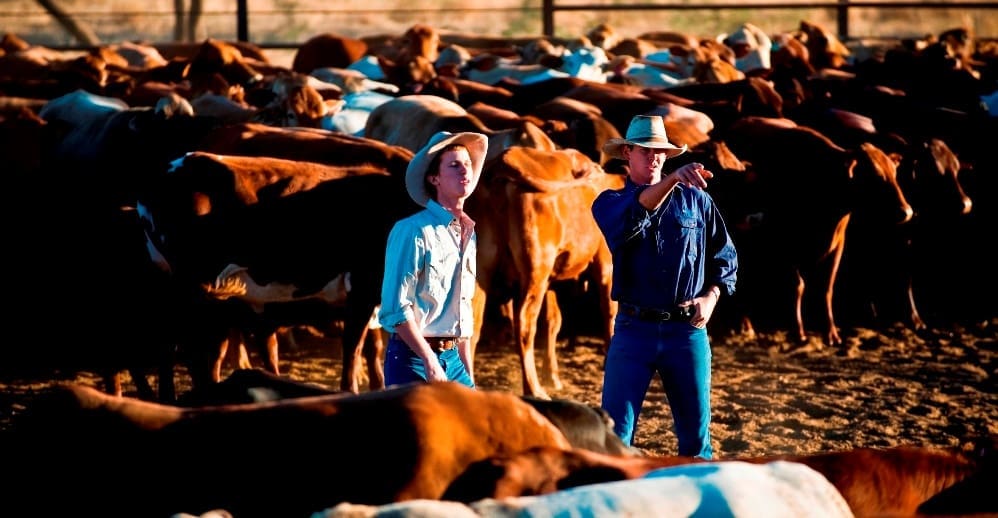Latest listings on Jobs Central recruitment page:
- Cattle Station Caretaker, NT – via AusAg Rural Recruitment
- Account Manager, Esperance Region WA – via Rimfire Resources
- Account Manager, Great Southern Region WA – via Rimfire Resources
- Animal Health Cadetship – Stanbroke
- Nutrition & Milling Cadetship – Stanbroke
- Station Hand, Qld – Colinta Holdings, Glencore
- Cattle & Maintenance Manager, SA – via Lucas Group
- Livestock Clerk – JBS
- Sales Manager, NSW – via Rimfire Resources
- Agronomist – Ace Ohlsson
- Feedlot Manager, Kurrawong – Morgan Pastoral
- National Technical Lead – via Rimfire Resources
- Livestock Hand, Opal Creek – Australian Country Choice
- Commercial Manager – NAPCo
- Assistant Manager/Station Hand, Qld – via Strand Advisory
- Order Entry & Documentation Clerk, Qld – John Dee, Warwick
- Territory Sales Manager, Valmont Irrigation – via Rimfire Resources
- Station Hand, Hughenden area Qld – via Ag Workforce
- Area Sales Manager, Vic – via Agricultural Appointments
Click here to access these and other exciting meat and livestock supply chain jobs currently listed on Jobs Central.

A good initial interview should give an employer screening candidates for a job a feel for two things: whether an individual has the skillset and experience to do the job they’re applying for, and whether they’d be a good cultural fit for the organisation.
By establishing a strong rapport with candidates, the interviewer/manager can find out those things and much more. It’s best to start the conversation with an informal chat about the candidate’s personal background and interests before moving into a discussion about the role – what it entails and how it has come about.
Asking a candidate to talk through their career journey in detail will help the interviewer/manager to understand who they are, where they’re from and what’s driving their decision making and career choices.
Some people tend to talk up their previous positions, at least a little, and give the rosiest possible view of their achievements. It’s your job to drill down and ask some hard questions – how much of a role was actually administration work, for example, and how much involved making significant financial decisions or managing a team.
Finding out what motivates candidates and where they’re aiming to go career-wise is also important. Asking them about the jobs they’ve found most satisfying, what’s lacking in their current role and the reason yours appeals should tell you where they’re at and whether what’s on offer will challenge and engage them long-term.
The ag sector has a culture of not ‘talking yourself up’ and well-credentialed individuals may not be comfortable blowing their own trumpets
Requesting candidates share their strengths and the attributes that set them apart from other candidates can also be enlightening, but you’ll need to be aware that some seasoned agri-professionals will find these questions tough to answer.
The agricultural sector has a culture of not ‘talking yourself up’ and well-credentialed individuals may not be comfortable blowing their own trumpets.
As you talk, be on the lookout for red flags. Common ones include unexplained gaps in the CV and a candidate who is unwilling or unable to talk about why they left one organisation for another. This can be a clue that personality issues are a factor, or that the candidate has difficulties working in a team.
Talk about money should be saved until towards the end of the interview. If the role has been advertised with a salary range, or discussed when the interview was set up, you should be roughly on the same page.
At this stage, recruiters often ask candidates to share details of their current package, including base salary, whether a vehicle is included and if bonuses are paid. If your organisation is willing to pay relocation expenses, you should outline exactly what assistance will be on offer.
The best interviews are face to face but, in COVID times, they can be harder to arrange. If you’re vetting a candidate via Zoom or Teams meetings, it can be tricky to get a handle on who they are, in the space of a single session. You might choose to conduct a follow-up interview to help guide your decision-making.
Source: Agricultural Appointments



HAVE YOUR SAY